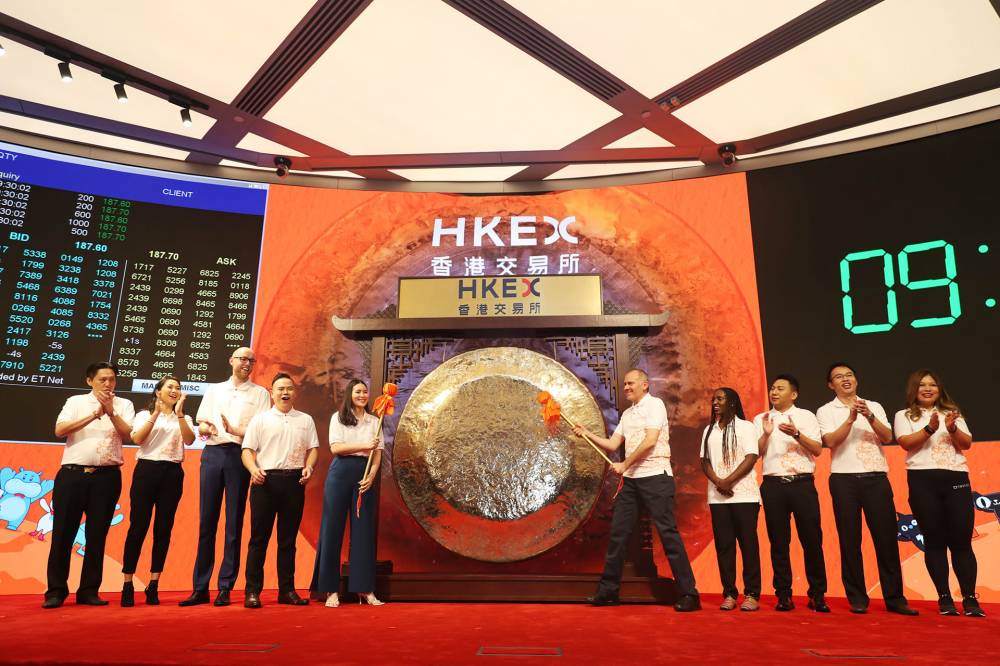
- In a major change announced last month, the 50-year-old Hang Seng index (HSI) will for the first time allow companies with primary listings overseas, as well as those with dual-class shares, to be included in the benchmark index.
- Jefferies identified 31 Chinese companies currently listed in the U.S. that could potentially flock to Hong Kong. It said this "listing emigration" could attract up to $557 billion to the Asian financial hub.
- "The bottom line is that the evolution of the Hang Seng Index over the next 18 months will largely shift the index to a pure China one with a significant tech, e-commerce and IT weighting," Jefferies wrote in a note on Sunday.
Ten global partners of Alibaba beat the gong during the company's listing on the Hong Kong Exchanges and Clearing Market on November 26, 2019.VCG | Visual China Group | Getty Images
Hong Kong's Hang Seng Index will likely be largely China-focused with a significant share of technology companies after the benchmark's revamp, according to American investment bank Jefferies.
In a major change announced last month, the 50-year-old Hang Seng index (HSI) will for the first time allow companies with primary listings overseas, as well as those with dual-class shares, to be included in the benchmark index.
Jefferies identified 31 Chinese companies currently listed in the U.S. that could potentially flock to Hong Kong. It said this "listing emigration" could attract up to $557 billion to the Asian financial hub.
Currently, companies listed in the U.S. can have a secondary listing on the Hong Kong Stock Exchange. But, before the latest rule change, they could not be included in the benchmark HSI, and by default, in the index funds that track the HSI.
The U.S. Senate also passed a bill last month which could essentially ban many Chinese companies from listing on American exchanges. That could drive many of them to instead list at home — on mainland Chinese exchanges, or in Hong Kong, analysts have said.
"The bottom line is that the evolution of the Hang Seng Index over the next 18 months will largely shift the index to a pure China one with a significant tech, e-commerce and IT weighting," Jefferies wrote in a note on Sunday.
Jefferies pointed out that the HSI "hardly represents" Hong Kong anymore, with companies within the index deriving the bulk of their revenues from mainland China.
"New Hang Seng constituents will diminish the weighting of property and probably financials to some extent," the investment bank added.
The Hang Seng Index currently tracks a list of 50 stocks and is currently tilted toward financial services companies, which have an overall allocation of more than 48%, according to Jefferies. The property and construction sector constitutes more than 10% of the index.
As a start, three Chinese tech stocks — e-commerce giant Alibaba, phone maker Xiaomi and food delivery giant Meituan — are set to reap the benefits of being included, according to a report by Morgan Stanley last month.
Other Chinese companies have also announced their intention to delist from the U.S., such as tech giant Baidu, which said last month it is "discussing options" such as a secondary listing in Hong Kong or other places.
Source: cnbc.com

